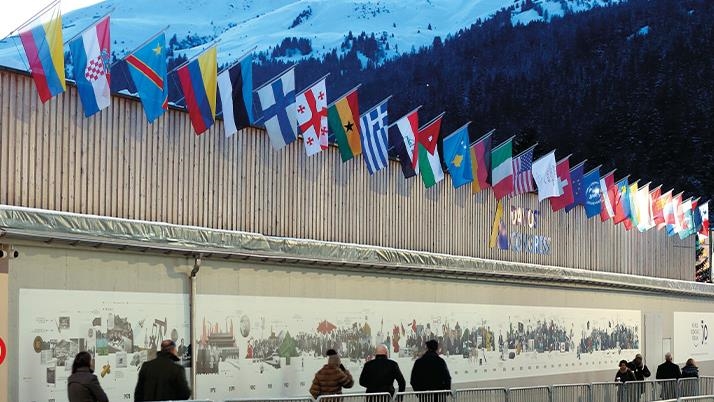Globalization describes the growing interdependence of the world economies, cultures, and people on one another.
The first wave of globalization was triggered by steamships, railroads, the telegraph, and other breakthroughs in the technology.
The economic cooperation among the countries was also on the rise taking the form of a globally integrated economy.
The globalization trend eventually waned and crashed with the events of world wars.
The recent COVID-19 pandemic seems supporting the idea of nationalism as the virus has spread its tentacles worldwide originating from a food market in Wuhan city of China. Nationwide lockdowns, limited economic activities, reduced socialization, deaths, depression, trauma; all resulted because of the latest version of coronavirus.
While China is seemingly structuring a new system through the provision of material support to various states, the US seems hesitant to lead from the front in view of the prevailing Covid-19 crisis. The economic fallout caused by coronavirus pandemic can open a new chapter in global financial history.
Globalization was in hot waters even before the era of the COVID-19 pandemic. The open system of trade already suffered a huge blow firstly at the time of the great financial crash and secondly because of the Sino-American trade war.
Now it is reeling from its third blow as lockdowns have sealed borders that nobody knows when open again for free movement of goods and services.
After Lehman Brothers collapsed in 2008 most banks and some multinational firms pulled back. Trade and foreign investment stagnated relative to GDP.
As the world is moving towards the self-sufficiency in the availability of goods and capital, the national leaders are urging the people to support the local industry by purchasing its products. Japan stimulus includes subsidies for firms that repatriate factories whereas European Union officials talk about strategic autonomy and are creating a fund to buy stakes in firms. America is preferring to build plants at home.
But, before blindly supporting the close-border nationalism, realizing the globalization and its true significance is customary. It was only the result of advanced technological, economic, and communication globalization that enabled scientists to sequence and share the genome of deadly coronavirus within weeks after its emergence.
The Covid-19 pandemic clearly caught most countries unprepared but the globalization of economy and economic organizations facilitated the worst-hit countries to get the timely financial and services support by other countries of the world and global institutions.
Moreover, no country can be self-sufficient in every capacity as it will definitely increase the cost to unusual levels alongside imbalances in supply and demands.
Discouraging the movement from across the borders has devastated the airline industry like never before. Airbus has cut production by a third and Emirates expects no recovery until 2022. The pandemic is very likely to continue to haunt the trade and movement of people at least in the near future unless some viable treatment or vaccine takes its control.
The closure of factories, shops, and offices has caused demand to tumble and prevented suppliers from reaching customers. The pandemic has caused irreparable damage to globalization and its huge benefits but still, globalization will continue to accompany the future like a necessary evil.
📍 SEO & Content Strategist | Expert in Current Affairs, History, Geography & Education Blogs | Digital Marketing Specialist
Muhammad Talha Mehmood is a seasoned digital marketing specialist, SEO expert, and content strategist with over six years of experience in creating high-impact, research-driven content. As the driving force behind Globaleak.com, he delivers in-depth articles on current affairs, history, geography, and education, helping readers stay informed with accurate, well-researched insights.
🔹 Expertise & Achievements:
✔ SEO & Content Strategy: Specializes in creating authoritative, high-ranking content that aligns with Google’s EEAT guidelines.
✔ Research & Analysis: Covers historical events, geopolitical trends, and educational topics with in-depth research and expert insights.
✔ Proven Track Record: Has successfully worked with global clients, delivering content that enhances brand trust, audience engagement, and search rankings.
✔ Academic Excellence: Holds an MBA in Marketing from IBA, University of the Punjab, and a B.Com (Hons) from Hailey College of Commerce.
✔ Industry Experience: Started his career with Packages Limited, trained under PITB’s E-Rozgar Program, and later became a Team Leader & Trainer at Emenac Group of Companies.
🚀 Passionate about creating impactful content, Muhammad Talha ensures every article is insightful, engaging, and value-driven.
📧 Email: talhamehmood34@gmail.com
🔗 LinkedIn: linkedin.com/in/talhamehmood-34









